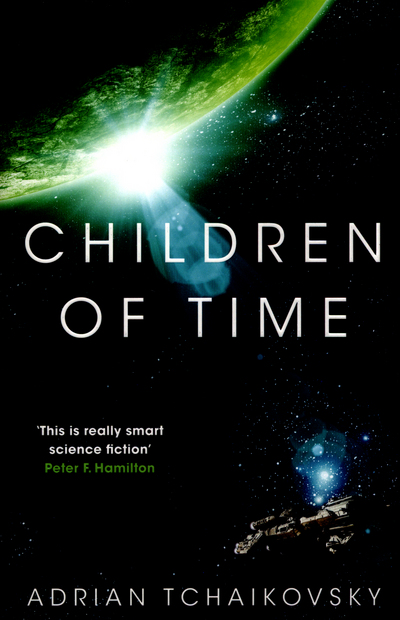Children of Time

Children of Time by Adrian Tchaikovsky is an amazing science fiction novel. The novel follows two intertwined plot lines that span a millennia. In one thread, the last remains of humanity leave a ravaged Earth aboard the Gilgamesh in search of a new home world. They follow star maps left behind of an advanced civilization–the so-called “Old Empire”–that had collapsed a thousand years before the Gilgamesh departed from Earth. The other plot line of the book follows the evolution of intelligent life on Kern’s world, a terraformed planet left behind by the Old Empire.
The world-building in the novel is incredible. The unique evolution of life on Kern’s planet is so creative and well-executed. Meanwhile, aboard the Gilgamesh, Tchaikovsky builds a compelling story of the struggles of humanity to survive for millennia aboard a single ship. I especially liked the effective use of stasis chambers; we follow the main human character, Mason Holsten, as he jumps through time with the help of the Gilgamesh’s slowly failing stasis technology. I loved the contrast afforded by alternating between chapters describing an emerging civilization and a dying one.
I think the biggest weakness of the book is the characters, although Tchaikovsky generally hits the mark with them. The storyline on Kern’s planet crosses generations. Consequently, we follow particular characters for only a few chapters maximum at a time, but they are well-developed in their limited book time. The human characters are followed for most of the novel. Some of the characters occasionally feel one-dimensional given their extended role; however, I still did enjoy reading about how the characters changed and reacted to the long years aboard the Gilgamesh. Additionally, some of the plot lines in the human story felt less original and creative compared to the stories on Kern’s planet.
Overall, I thoroughly enjoyed Children of Time and completely recommend it to any science fiction lover. The story of ambitious, creative, and beautiful; I can see why it was awarded the 2017 Arthur C. Clarke Award.
Rating: 5/5